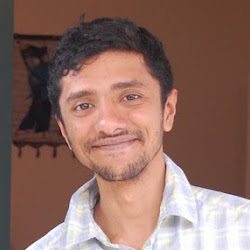Computational Imaging: Beyond the Limits Imposed by Lenses
Virtual VASC Seminar: https://cmu.zoom.us/j/92587238250?pwd=S0paYUVBUXozQkFTclMwRUg0MzBNZz09 Abstract: The lens has long been a central element of cameras, since its early use in the mid-nineteenth century by Niepce, Talbot, and Daguerre. The role of the lens, from the Daguerrotype to modern digital cameras, is to refract light to achieve a one-to-one mapping between a point in the scene and a point on the sensor. This effect enables the sensor to compute a particular two-dimensional (2D) [...]
Beyond ROS: Using a Data Connectivity Framework to build and run Autonomous Systems
Virtual FRC Seminar: Seminar recording: https://cmu.zoom.us/rec/share/x84qF7_q8TlIcpHoyG_DRa58O6i8aaa8hCAW_fEPxEkBGjBVPyzW_lK0YW30RfJ3?startTime=1598551489000 Passcode: qu6)ePH9 Abstract: Next-generation robotics will need more than the current ROS code in order to comply with the interoperability, security and scalability requirements for commercial deployments. This session will provide a technical overview of ROS, ROS2 and the Data Distribution Service™ (DDS) protocol for data connectivity in safety-critical cyber-physical [...]
Learning 3D Reconstruction in Function Space
Virtual VASC Seminar: https://cmu.zoom.us/j/96635002737?pwd=RkxGVlJaUTlhcDdGeVBPcnpTS015dz09 Abstract: In this talk, I will show several recent results of my group on learning neural implicit 3D representations, departing from the traditional paradigm of representing 3D shapes explicitly using voxels, point clouds or meshes. Implicit representations have a small memory footprint and allow for modeling arbitrary 3D toplogies at [...]
Carnegie Mellon University
Machine Learning Parallelism Could Be Adaptive, Composable and Automated
Zoom Link Abstract: In recent years, researchers in SysML have created algorithms and systems that parallelize ML training over multiple devices or computational nodes. As ML models become more structurally complex, many systems have struggled to provide all-round performance on a variety of models. Particularly, ML scale-up is usually underestimated in terms of the amount [...]
Carnegie Mellon University
Computational Contact Modes for Robotics
Zoom Link Abstract: A central theme in robotics is that of robots interacting with the world through physical contact. Whether it is a walking robot or robotic manipulator picking up an object, such as a spoon, we desire robots that physically interact with their environments. One significant challenge in physical robot interactions involves dealing with [...]
Carnegie Mellon University
Data-Driven Robotic Grasping in the Wild
Zoom Link Abstract: Humans can effortlessly grasp a wide variety of objects in diverse environments. On the other hand, robotic grasping has been extremely challenging in practice and is far from matching human dexterity. Despite recent progress in the community, most research is still largely focused on constrained environments like picking individual objects on a [...]
Scaling Probabilistically Safe Learning to Robotics
Abstract: Before learning robots can be deployed in the real world, it is critical that probabilistic guarantees can be made about the safety and performance of such systems. In recent years, safe reinforcement learning algorithms have enjoyed success in application areas with high-quality models and plentiful data, but robotics remains a challenging domain for [...]
Carnegie Mellon University
Routing for Persistent Exploration in Dynamic Environments with Teams of Energy-Constrained Robots
Abstract: Disaster relief scenarios require rapid and persistent situational awareness to inform first-responders of safe and viable routes through a constantly shifting environment. Knowing what roads have become flooded or are suddenly obstructed by debris can significantly improve response time and ease the distribution of resources. In a sufficiently large environment, deploying and maintaining fixed [...]
Compositional Representations for Visual Recognition
Virtual VASC - https://cmu.zoom.us/j/99437689110?pwd=cWxuQkIwWlFFZEk0QkVDUVFiN0lTdz09 Abstract: Compositionality is the ability for a model to recognize a concept based on its parts or constituents. This ability is essential to use language effectively as there exists a very large combination of plausible objects, attributes, and actions in the world. We posit that visual recognition models should be [...]
Sparse Spatial Hashing for Dense 3D Reconstruction
Abstract: Real-world 3D data is locally dense but globally sparse. Therefore, efficient sparse data structures are an essential component of dense 3D perception for computer vision and robotics. We manifest the power of spatial hashing by two typical tasks: dense scene reconstruction and global registration. In the first task, we accelerate volumetric integration and surface [...]









